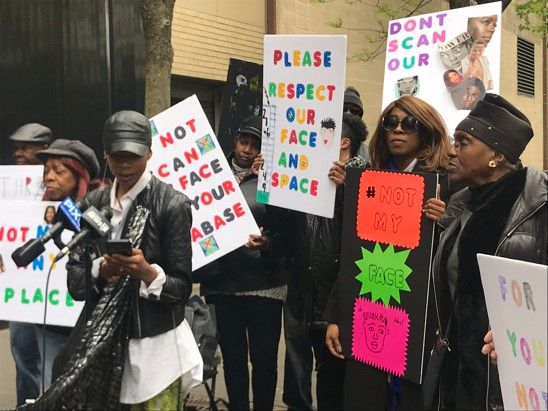US - "The Rosa Parks of facial recognition"
-
Opposition de résidents d'un immeuble de New York à l'installation de la reconnaissance faciale pour gérer les entrée-sorties.
Last year, residents of Atlantic Plaza Towers, a rent-stabilized apartment building in Brooklyn, found out that their landlord was planning to replace the key fob entry system with facial recognition technology. The goal, ostensibly, was to modernize the building’s security system.
But some residents were immediately alarmed by the prospect: They felt the landlord’s promise of added security was murky at best, and didn’t outweigh their concerns about having to surrender sensitive biometric information to enter their own homes. Last week, lawyers representing 134 concerned residents of the building filed an objection with the state housing regulator. It is the first visible opposition in New York City to the deployment of such technology in the residential realm.
“We’re calling ourselves the Rosa Parks of facial recognition in residential buildings,” said Icemae Downes, a resident who has lived in the building since 1968 and was part of a residents’ protest last week. “We’re standing up to say, ‘No, we don’t feel this is right.’”
...
The building complex already has a security guard and its common areas are wired with several security cameras. And the residents say they already feel heavily watched. Last month, the New York Times reported that when some of them gathered in the lobby to discuss the facial recognition system, building management sent them a notice with pictures taken from a security camera and a warning that the lobby was not “a place to solicit, electioneer, hang out or loiter.” (Landlords, however, don’t have the authority to ban peaceful assembly in this way.)https://www.citylab.com/equity/2019/05/facial-recognition-tech-surveillance-security-amazon-ring/588436/Quelques citations et phrases clés :
- "We should not feel like we’re in a prison to enter into our homes.”
- “We’ll be tracked the minute we step out of our home, and lose the ability to be anonymous in public.” “It’ll be too dramatic of a power shift between the government and the governed”
- “Why should a private person be able to say that I own this property and I will do what I want to do to my tenants?” she said. “We’re saying that’s a slave mentality and we don’t like it.”
- One analysis found that facial recognition software had an error rate of 0.8 percent for white men, and 34.7 percent for black women.
- Historically, poor and marginalized communities—and by extension the spaces in which they live—have been disproportionate targets of state surveillance, and new technologies and techniques are often first used on such individuals before they are rolled out more widely, advocates say.
